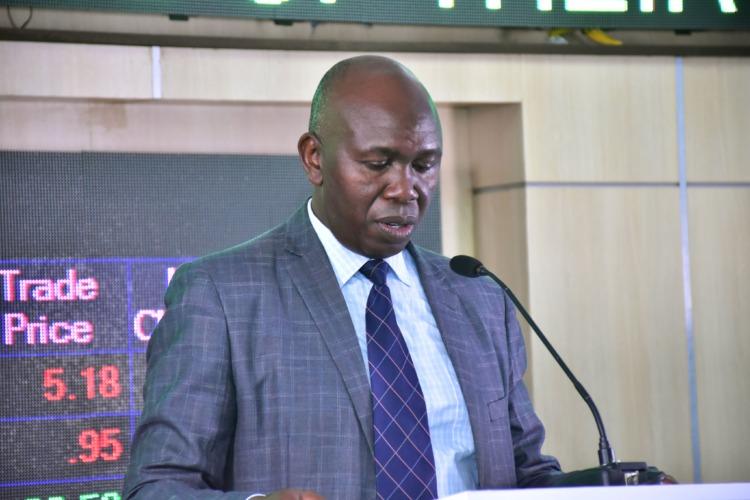Kenya’s Capital Markets Authority (CMA) has announced a new deal that will help businesses in the private sector forge their way to recovery.
CMA has signed a Memorandum of Understanding (MoU) with the Kenya Private Sector Alliance (KEPSA) to support market deepening and leveraging capital market products to catalyze growth in the sector.
The partners say the move is line with the Big 4 Agenda and Sustainable Development Goals.
Through the MoU, CMA and KEPSA say they will be seeking avenues for private and public sector finance and investment necessary to support Kenya’s economic growth and complement development funding gaps.
The two institutions will also seek to collaborate in the development of policy and regulatory interventions to create a conducive business environment that will support a robust, resilient, and inclusive financial sector through the growth of the capital markets.
The CMA Chief Executive, Wyckliffe Shamiah said the partnership is expected to promote Small and Medium-Sized Enterprises’ (SMEs) utilization of the capital markets to raise long-term capital in appreciation of the critical role of SMEs in the economy, and especially in facilitating economic recovery from the effects of the Covid-19 pandemic.
“One of the strategies adopted by CMA to support SMEs tap into the capital markets is a review and possible revision of the existing eligibility and disclosure requirements under the Capital Markets (Securities)(Public Offers Listing and Disclosures) Regulations 2002 regulatory framework to make it more responsive to emerging and evolving market needs,” he said.
Commenting on the same, KEPSA Chief Executive Officer Carole Kariuki Karuga said the partnership will go a long way in ensuring that many SMEs discover their way to recovery.
“This MoU complements our series of trainings that we have been conducting on businesses, especially in accessing financing. Our MSMEs will now be able to access the capital market products, hence easing their burden of getting credible financing for their operations,” said Carole Kariuki Karuga, the KEPSA Chief Executive Officer.
KEPSA and CMA will develop a joint work plan to support the activities under the partnership.
Some of the planned activities include joint quarterly fora to engage KEPSA members on capital market products, and joint publications and research on financial markets to create financial quick reference materials to be distributed to critical stakeholders such as the youth, investment clubs and professionals.
SMEs on their knees
The signing of the MoU comes at a time when Central Bank of Kenya has painted a grim picture, pertaining to what the SME sector has had to endure amid the coronavirus pandemic.
In a fresh report, CBK revealed that more than a quarter of employees in small and medium enterprises have been compelled to work for free.
The report, compiled in March, indicates that 27 percent of staffers in the sector were working with receiving any payment.
The share of staffers working without pay was nine percent in February 2020 but nearly doubled to 16 percent between April and July, when restrictions related to combating COVID-19 peaked.
The survey covered 1,610 respondents across 47 counties in Kenya.
The study also revealed that subdued business environment had forced businesses to turn to families and friends for cash to run operations and pay staff salaries.
CBK said 54 percent of the businesses got cash from their families and friends, while 19 percent of businesses turned to saccos.
The report however noted that banks remained cautious on lending to SMEs due to the increased risk.
Hope for recovery?
The CBK finding comes even as a separate study reveals that the level of confidence by SMEs in the country is beginning to rise.
In its inaugural Mastercard Middle East and Africa (MEA) SME Confidence Index, Mastercard earlier this week reported that 61 percent of SMEs in Kenya are seeing positive signs of recovery.
The enterprises have identified easier access to funding at 73 percent, acceptance of digital payments, better data and insights, and digitizing business operations at 72 percent as the top three drivers for growth of confidence.











